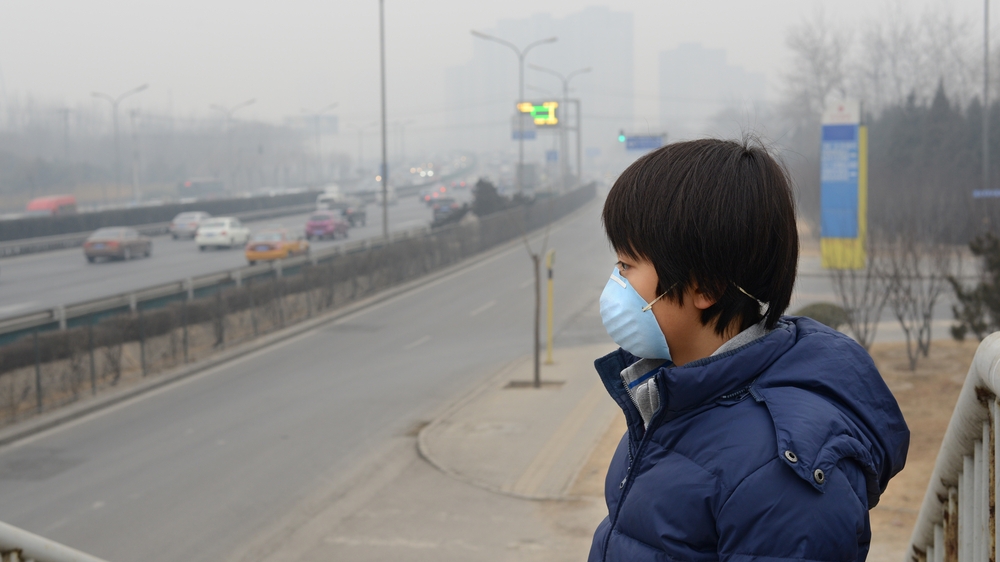Context
Rapid urbanization, industrialization and motorization have intensified pollution, especially in developing countries. Vehicle exhaust, untreated wastewater, nitrogen fertilizer runoff, dirty fuel burning, industrial emissions and toxic waste including e-waste cause debilitating and fatal illnesses, destroy ecosystems and create harmful living conditions.
Pollution is not a uniquely urban challenge; in rural areas, inefficient cook-stoves, undrinkable water and contaminated soil are toxic and stunt economic growth. Poor people, who can’t afford to protect themselves from the negative impacts of pollution, end up suffering the most.
In 2012, an estimated 9 million people died from air, water and land pollution, according to the Global Alliance on Health and Pollution. According to the Institute for Health Metrics and Evaluations (IHME), diseases attributed to indoor and outdoor air pollution were responsible for 1 in 10 deaths worldwide in 2013, and air pollution has become the fourth risk factor for premature deaths, just behind tobacco smoking.
While the challenge of pollution is a global one, the impacts are overwhelmingly felt in developing countries. About 95 percent of adults and children impacted by pollution-related illnesses live in low and middle-income countries.
It is critical to address pollution because of its unacceptable toll on health and human capital, as well as associated GDP losses. Pollution management offers no-regrets options to boost economic development and competitiveness (through for example, improved transport, job creation, better energy efficiency, sustainable urban and rural development), mitigate related climate change (for example black carbon contributes to both air pollution and global warming), and address the vital demands of millions of people for healthier and more productive lives.
Strategy
The World Bank Group works with developing countries and development partners to reduce pollution, implement proper waste management, improve water and air quality and promote clean development for healthier lives and better economic opportunity.
Between Fiscal Year 2009 and 2016, World Bank commitments (IBRD/IDA) to pollution management and environmental health totaled more than US$6.5 billion. Recently approved projects include US$1 billion to improve air quality in China by reducing emissions of specific air polutants in the province of Hebei, and by increasing energy efficiency and clean energy in the Beijing-Tianjin-Hebei region; and steps to address water pollution in a lake that provides water for about a third of Lebanon's irrigated land.
In 2014, the World Bank established a Pollution Management and Environmental Health (PMEH) program that builds upon experiences in urban and rural pollution reduction from around the world to promote more systematic and effective responses to deadly and costly pollution.
The World Bank also partners with the Climate and Clean Air Coalition and the Global Alliance on Health and Pollution to achieve greater global action to clean up pollution.
The Bank provides technical assistance, financing and knowledge products that cover:
- legacy pollution cleanup and land rehabilitation;
- management of different forms of waste including solid waste, industrial/e-waste, and wastewater;
- improving air quality through the reduction of indoor/outdoor air pollution, short lived climate pollutants and GHG emissions;
- improving water quality, both in freshwater and in oceans;
- promoting environmental sustainability in economic sectors;
- helping countries improve environmental governance, regulation and enforcement.
Results
Air pollution
The Cost of Air Pollution: Strengthening the economic case for action, a joint World Bank-IHME report published in September 2016, pointed to the economic burden of air pollution by estimating that related premature deaths cost about US$225 billion in lost labor income or more than US$5 trillion in welfare losses worldwide in 2013.
In Santiago, Chile, and Bangkok, Thailand, policies aimed at reducing pollution have produced tangible health benefits for people of all backgrounds. In Santiago, the Sustainable Transport and Air Quality program supported a long-term shift to more efficient and less polluting forms of urban transportation.
In Bangladesh, the Bank is helping to modernize brick kilns to reduce air pollution including carbon emissions and increase productivity. Carbon credits related to the project are helping improve working conditions, protect people's health and provide better pay for workers.
In China, the Eco-Farming Project installed bio-digesters and renovated kitchen, toilet and pig shed for 470,141 rural households in five provinces, improving people's quality of life by reducing indoor air pollution, saving time for firewood collection and cooking, increasing disposable income through less spending on coal and fertilizer, and reducing greenhouse gas emissions.
More results:
Curbing Air Pollution in Ulaanbaatar
Cleaner Cookstoves for a Healthier Indonesia
Cutting Short-Lived Climate Pollutants
Land Pollution
In Morocco, the World Bank has supported the modernization of waste management, including at sites like Oum Azza, near Rabat, where traditional trash-pickers now operate a recycling collective in improved conditions.
In Africa, a $25 million program has removed over 3,000 tons of obsolete and dangerous pesticides from close to 900 contaminated sites in Ethiopia, Mali, Tanzania, Tunisia and South Africa.
In Belarus, the Bank worked with the Ministry of Natural Resources and Environmental Protection to develop its capacity to treat and dispose of hazardous waste. The Bank supported a massive cleanup operation at the Slonim burial site, which excavated and disposed of up to 1750 tons of toxic obsolete pesticides.
More results:
Argentina Solid Waste Management
Cleaning up Uranium in Argentina
Kosovo Energy Sector Cleanup and Land Reclamation
Ridding Moldova of Toxic Chemicals
Solid Waste Management in Indonesia
Water pollution
In China, the Bank helped clean up the Pearl River system in fast growing Guangdong province by expanding waste water treatment capacities of Foshan and Jiangmen to reduce pollution originating from these two municipalities, directly benefiting 1.7 million residents in the project areas. Pollution reduction and water quality improvement in the Pearl River Delta waterways have also contributed to welfare of the people who live downstream of the project area.
More results:
Kazakhstan Nura River Cleanup Project
Controlling pollution in Croatia’s Coastal Waters
Wastewater treatment and landfills ease pollution in China’s Yangtze River
Dernière mise à jour: oct. 03, 2016
